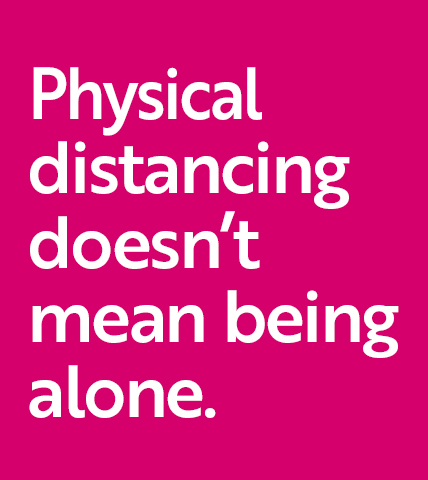People living with a spinal cord injury often have a harder time with breathing and lung function. This information sheet has been put compiled to help you know what to do during this phase of the COVID-19 pandemic.
Prevention
- Practice social distancing (staying 6 feet away from others), avoid large groups, and stay home when possible. If you do stay home, it is important to know you are not alone and can access services or connect with your local SCI organization via phone, online or by other means.
- Stay home except to get medical care (see above)
- Call your doctor before you visit to let them know if you are unwell and have other health concerns.
- Wash your hands regularly with warm soap and water for 20-30 seconds. (Detailed Hand Hygiene)
- Clean all surfaces regularly that you touch every day including your phone, joystick and wheelchair armrests, tray, push rims…..
- Prepare your Emergency Kit
- Keep 30 days of medical supplies (catheters and dressing supplies) and medication on hand (this could be a financial hardship – let your support network know if financial restrictions are keeping you from making the best decisions for your health)
 Attendant Care Issues
Attendant Care Issues
- Ensure attendants have not travelled to an affected area or outside of Canada in the last 14 days.
- Send attendants home who are not well.
- Ask attendants to wash their hands when they arrive and before they provide any care.
- Be sure your attendants and you wash your hands after all care.
- Have a back-up plan if your attendant does not come to work or is sick.
- Public health Ontario FAQ regarding caregivers
If you are sick, or think you might have COVID-19
- Isolate yourself at home if you develop respiratory symptoms
- Call your local public health authority for advice
- Here’s a list of symptoms to monitor: fever, cough, muscle pain, headache, sore throat, repeated shaking and chills, loss of taste or smell.
If you have a spinal cord injury and use a ventilator, c-pap,or cough assist device, check this resource www.canventottawa.ca
- Speak to your health care provider or respiratory therapist regarding what precautions you, your family and attendants should take in your home
- Clean your equipment and replace filters regularly as per your device manual
- Ensure you have an adequate supply of filters and tubing
Stay Informed
Check the advice from your local provincial health authority every 24-48 hours. Some relevant links:
- Ontario Ministry of Health COVID-19 Info (web link)
- Canada Ministry of Health COVID-19 Info (web link)
- World Health Organization advice for public (web link)
Note and Disclaimer: This guidance was updated by experts in the Canadian SCI community on January 4, 2021, in consultation with infectious disease specialists. This information is based on the best available evidence at the time of release. We can’t guarantee that the guidance is up to date or current as the pandemic is changing daily.

